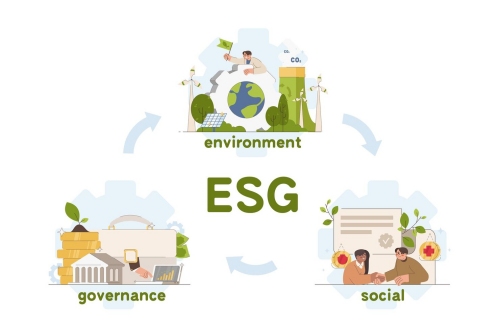Hello and welcome back to the Skills 360 podcast. I’m your host, Tim Simmons, and today I want to talk about “ESG,” or the environmental, social, and governance commitments companies make.
Along with DEI, which we’ll talk about next time, ESG is one of those acronyms that seems to be everywhere these days. Some companies have made huge strides in ESG, and many of them are reaping the rewards. Others have just started down the path. And then there are some that are resisting, for better or worse. Whatever the situation in your company is, it’s important for you to know what ESG is all about.
On a very simple level, ESG is about paying attention to the non-financial impacts, risks, and opportunities in business. The “E” in ESG stands for “environmental.” This refers to a company’s impacts on the environment, its greenhouse gas emissions, its care for natural resources, and its resilience in the face of climate change.
The “S” in ESG stands for “social.” This pillar is all about the company’s relationship with its stakeholders, both internal and external. That includes employee engagement, as well as relationships with the surrounding community and its people. Finally, the “G” in ESG stands for “governance.” This is all about ethical and accountable leadership, board oversight, equity, and transparency.
Now, it may not be obvious to everyone why a company should care about these things. But one reason to care is that people care. Communities want responsible and transparent business practices. Customers increasingly think about the ethics of a business. Employees have higher expectations of their employers. And as ESG becomes more widespread, companies themselves are careful about getting into bed with a partner or supplier that isn’t holding itself to high standards. So, ignore this at your peril.

One of the big pushes for ESG is in the investment world. Some years ago, investors learned that companies that paid attention to these things actually performed better than companies that didn’t. That was a wake-up call. And it wasn’t long before investors were demanding companies disclose their ESG achievements.
As a result, socially responsible investing has grown like wildfire. Money is flowing fast towards ESG-related funds and away from those funds that haven’t embraced the change. So how does a company prove its commitment to environmental, social, and governance principles? It’s all about reporting and ratings.
ESG companies are collecting massive amounts of data on everything from their carbon footprint to workplace diversity to transparency in decision-making. So, jumping on the bandwagon typically requires collecting and reporting on a lot of information that you might not have reported on before. It’s not all about the balance sheet anymore.
If you do get on board with ESG, you’ll discover many benefits. One of these is enhanced operational efficiency and innovation. Finding ways to reduce your carbon footprint, for example, can spur creative problem-solving. Besides inspiring innovation, ESG requires attention to long-term risks to the environment, which is easy to miss as we focus on quarterly profits.
Having a reputation as a responsible company has enormous advantages. It helps you with consumers, of course, but it also helps you attract and retain talent. And it’s not just customers and employees who are paying attention, but also governments. ESG-focused companies are finding an easier time tapping into new markets and generally fewer regulatory and legal constraints.
If you’re not sold yet on the importance of ESG, then consider the bottom line. There’s lots of research to show that companies with higher ESG performance deliver higher returns on equity and lower cost of capital. So if you think you can’t afford to invest in environmental, social, and governance improvements, well, maybe you can’t afford not to.
That’s all for today. So long. And see you again soon!















